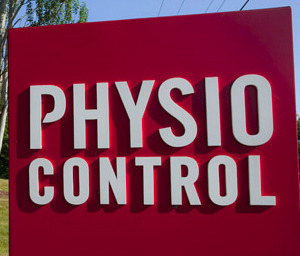by
Brendon Nafziger, DOTmed News Associate Editor | February 24, 2010

Defibrillator maker ensures
production quality control
The FDA gave a resuscitating jolt of its own to Physio-Control, a company that makes external defibrillators, when it lifted restrictions against selling their products in the U.S last week.
In a letter to its customers published Friday, the Medtronic-owned firm says FDA eased the ban after new quality-control procedures were instituted at its Redmond, Wash. factory.
"Although this has been a challenging time in the history of our company, I am proud of the way the Physio-Control team has responded to these challenges," President Brian Webster said in a statement.



Ad Statistics
Times Displayed: 136626
Times Visited: 7924 MIT labs, experts in Multi-Vendor component level repair of: MRI Coils, RF amplifiers, Gradient Amplifiers Contrast Media Injectors. System repairs, sub-assembly repairs, component level repairs, refurbish/calibrate. info@mitlabsusa.com/+1 (305) 470-8013
Physio-Control voluntarily stopped selling its LIFEPAK defibrillator to many of its U.S. customers in January 2007 as the FDA moved to dock it for failing to investigate possible product defects and file proper reports, among other violations.
But under a May 2008 agreement with the government agency, Physio-Control vowed to improve quality-control procedures and was allowed to sell limited quantities of its defibrillators to emergency medical services and hospitals, which make up the bulk of its customers, according to the company.
"Our core market is really emergency response," Jennifer Roth, a spokeswoman for Physio-Control, tells DOTmed News.
The FDA's injunction mainly throttled sales to public access purchasers, such as airports, stadiums and parks, and prevented the company from making field upgrades. Customers also had to write a letter certifying they were approved to purchase the device, Roth says.
International sales of the life-saving cardiac devices were unaffected by the FDA's injunction, which helped sustain the business as it labored under the three-year restriction.
Nonetheless, the injunction took its tool, triggering layoffs in 2007. But Roth says improvements in business management since the troubles started have led to a better company, and as sales climb they have hired more workers, now employing almost 1,100, only 100 shy of the pre-layoff totals.
CHANGES
According to Roth, changes to the company's manufacturing were profound, with the firm doubling the size of its quality-assurance group and fixing personnel management and complaint handling.
"I guess it was good news, bad news," Roth says. "It helped us to find improvements in manufacturing and the design process."
A 55-year-old business and one of the industry's pioneers, Physio-Control has had run-ins with the FDA before. In late 1991, the FDA, citing concerns with the manufacturing, forced their factory to shut down for 18 months.
Back to HCB News

